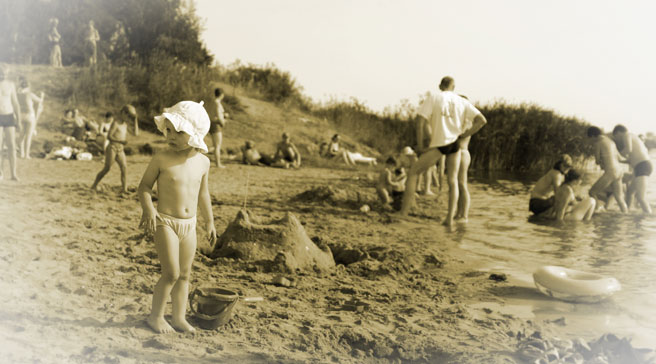Why memories can boost your mood
Research suggests that dwelling on our childhood memories, even the bittersweet kind, can improve our happiness and self-esteem

For many of us, autumn is a particularly nostalgic time of year. Something about the season of mists and mellow fruitfulness triggers an urge to reminisce – and the sensation may be poignant. As recently as 40 years ago, nostalgia was considered by many health professionals to be some sort of illness or pathological form of melancholy. Some called it ‘immigrant psychosis’ (the name is derived from the Greek – nostos – to return, algos – longing).
Now, however, research indicates that indulging in nostalgic feelings could be good for our psychological wellbeing. In a 2006 study from the University of Southampton, participants who were the most prone to nostalgic thinking also had the highest scores in happiness and self-esteem.
‘Our research suggests that nostalgia is largely psychologically positive,’ says Professor Clay Routledge of North Dakota State University. Reflecting on our memories can allay anxiety or produce feelings of contentment. Routledge even discovered that indulging in nostalgic thoughts could stave off thoughts about death. Nostalgia could be the great undiscovered asset in our emotional armoury.
‘Nostalgia is a special kind of reminiscence,’ says Fred Bryant, professor of psychology at Loyola University in Chicago, who has examined the role positive reminiscences play in wellbeing. ‘I’m convinced it is a form of mental time travel, to be able to go into our past, and bring those feelings into our present.’ Bryant’s research suggests that those who experience strong emotional reactions in daily life are more likely to reminisce. ‘We don’t necessarily reconstruct the exact feelings we had in the past. For most of us it’s more about how it feels to think about those times – there might be a wonderful sense of fulfilment, or love, and that is quite different from what one felt originally.’
Nostalgic thoughts, like all reminiscences, play an important role in shaping our identity. ‘They have a number of positive effects on how we see ourselves,’ says Routledge. ‘Waxing nostalgic about valued past experiences makes us feel as if our lives are full of purpose and meaning. It increases our self-esteem.’ Many of our nostalgic reminiscences are based around autobiographical memories that have a theme of redemption, or mastery. So you may remember how you felt when your parents announced their divorce, but also how you comforted your younger sister. These kinds of recollections can be a useful resource, suggests Bryant. ‘Men tend to reminisce about the past as a form of escapism, but women are better at drawing on past experiences to help them with a current dilemma.’
We can use our memories to remind us of our strengths, of how we have coped in similar situations. Nostalgia can also be a powerful social glue, for a number of reasons. First because, as Routledge points out, the people we are closest to are often the subjects of our reflections. We replay significant moments in our relationships – the early days of a romance, birthday parties, special holidays with friends. Because our recollections are largely positive, we are promoting positive feelings about our relationships. Second, there seems to be a link between our social competence – our openness and ability to support others – and the strength of our nostalgia. Finally, nostalgia can give us the sense that we are supported. In one study, simply recalling a memory made people feel more certain of the support of their friends.
In short, nostalgia can make us feel happier, increase our self-confidence, and make us feel closer to the people around us.
How to become a savourer
Deliberately practising ‘positive reminiscence’ can increase our sense of wellbeing, says Professor Fred Bryant of Loyola University
• Become more mindful of the present. Says Bryant, ‘It’s about being able to tell yourself “this is a moment worth remembering”.’
• In Bryant’s research, using mental imagery was more effective than using physical mementos as a memory aide. Pay attention to the colours, the smells, the sounds and especially to what you’re feeling. The stronger the emotional link, the easier we find it to rekindle that memory later.
• ‘The final stage of the process is being able to remember those experiences,’ says Bryant. ‘It needs to become almost habitual – spending time daily or weekly looking back on those moments. If you create a routine it may eventually become automatic.’








